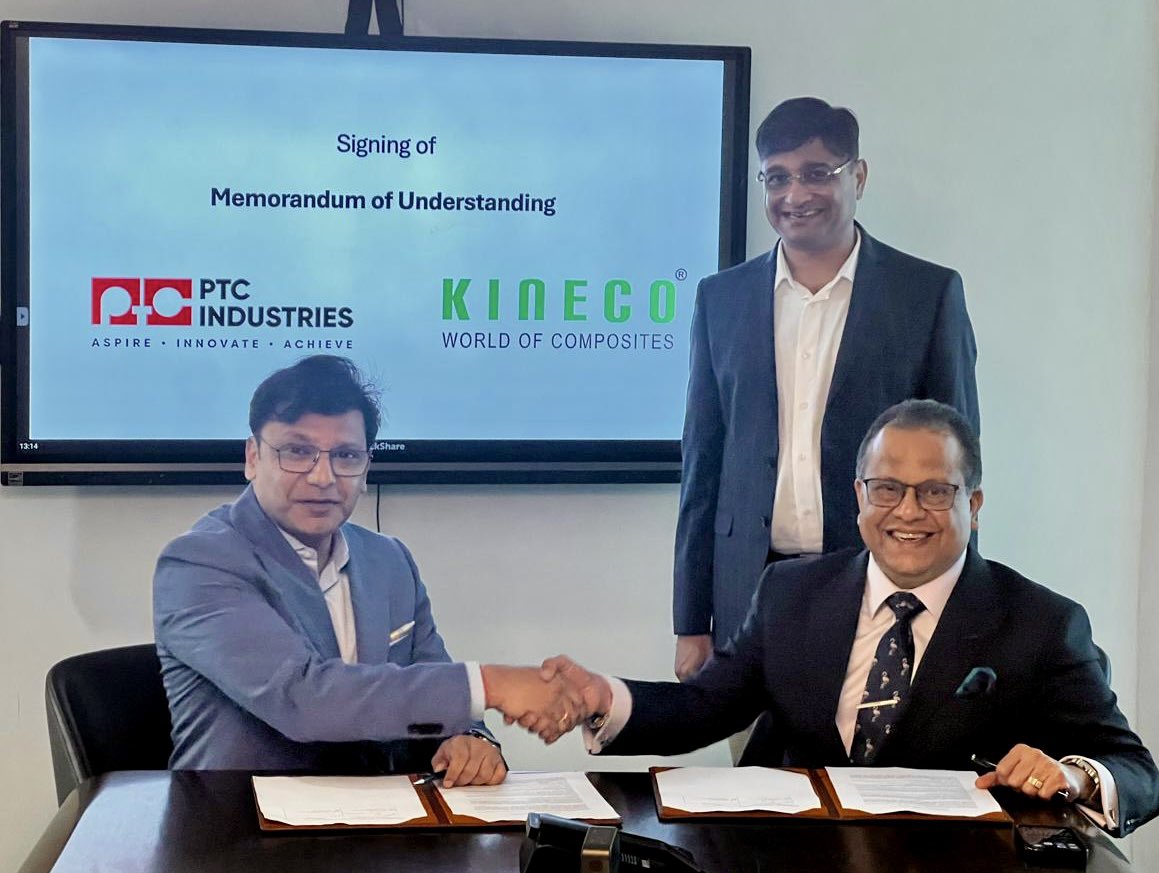India’s aerospace sector is undergoing a quiet transformation. No longer content with simply assembling aircraft parts, Indian companies are stepping into the realm of advanced materials and high-precision manufacturing. The latest example is a landmark collaboration that could redefine India’s place in the global aerospace value chain.
In aerospace manufacturing, two materials dominate the conversation: metals and composites. Metals bring unmatched strength and reliability, while composites offer exceptional lightness and flexibility. For years, India has been a significant contributor to global aerospace production, supplying parts and assemblies, but the core materials and most advanced technologies have often been sourced from abroad.
That is beginning to change.
PTC Industries and Kineco Aerospace & Defence have signed a strategic Memorandum of Understanding to design and manufacture next-generation aerospace components and structures. The agreement brings together high-integrity metals with advanced composite materials, with the aim of serving both Indian and global aerospace programs.
PTC Industries is a leader in precision manufacturing for the aerospace, defence, and industrial sectors. The company specialises in working with demanding metals like titanium and superalloys, materials that offer the perfect combination of strength, resistance to extreme temperatures, and long-term durability. These qualities make them essential for turbine blades, landing gear components, engine casings, and structural frames used in both civilian and military aircraft.
Kineco Aerospace & Defence, part of the Kineco Group, has established itself as a trusted manufacturer of advanced composite structures. Composites, such as carbon fibre reinforced polymers, are valued for their high strength-to-weight ratio. They are used extensively in modern aerospace applications, from fuselages and radomes to satellite panels and missile structures.
By combining PTC’s metallurgical expertise with Kineco’s composite capabilities, the two companies are set to create hybrid aerospace structures that combine the durability of metals with the lightweight performance of composites. This integration can improve fuel efficiency, extend operational life, and enhance performance across aircraft and space platforms.
The agreement goes beyond a standard business arrangement. For India, it marks a step toward moving higher up the aerospace value chain. It enables the localisation of critical components that were once imported, opens access to global markets, supports the national vision of Atmanirbhar Bharat, and creates opportunities for the integration of advanced materials into future aerospace designs.
Breaking into the upper ranks of aerospace manufacturing is no simple task. The sector demands precision, strict quality standards, and years of proven reliability. Indian firms have long contributed sub-assemblies and parts, but the development of core materials and flight-critical structures has mostly been controlled by a small group of advanced economies. This collaboration has the potential to shift that balance. By offering a complete package of materials, design, and manufacturing, PTC and Kineco can make India more competitive and attract high-value work from around the world.
Sachin Agarwal, Chairman and Managing Director of PTC Industries, described the partnership as an opportunity to deliver complete solutions across metals and composites for both Indian and global aerospace customers. Shekhar Sardessai, Founder and Managing Director of Kineco Group, called it a blend of material innovation and manufacturing excellence that paves the way for India to move beyond assemblies into the realm of core technologies and materials.
Aerospace manufacturing is an industry where reliability is non-negotiable. Every component must perform flawlessly in extreme conditions. The PTC and Kineco partnership combines complementary strengths that can help India become a more significant player in global aerospace supply chains, not just as a manufacturer of parts but as a creator of the materials and hybrid structures that define modern aviation and space exploration.
If successful, this collaboration could strengthen India’s position as a hub for high-tech aerospace innovation, create new opportunities for exports, and generate skilled jobs in engineering and advanced manufacturing. It is more than a business deal; it is a clear statement of ambition. As metals meet composites, India’s aerospace industry is preparing to reach new heights.
